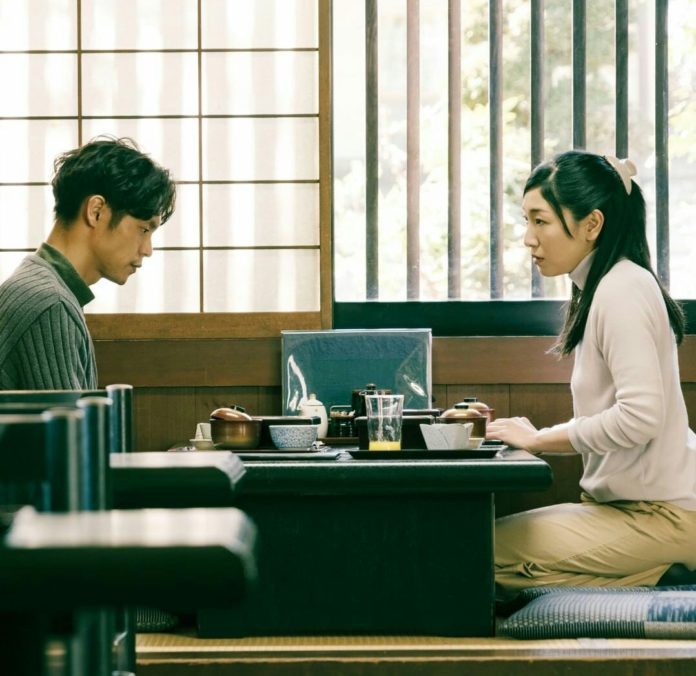The existential drift of Japan’s post-bubble “lost generation” gets the mystery thriller treatment in Kei Ishikawa’s Venice Horizons entry, A Man.
The film, based on the novel of the same name by Japanese author Keiichiro Hirano, follows a troubled lawyer (Satoshi Tsumabuki) who is drawn into a web of mystery when a former client (played by a soulful Sakura Ando, star of Hirokazu Kore-eda’s Palme d’Or winner Shoplifters) asks him to investigate the mysterious past of her deceased husband (a beguiling Masataka Kubota). The attorney encounters an array of colorful characters in his pursuit of the identify of this man who lived his life as a different person, but as he comes closer to the shocking truth, mixed feelings about the nature of his own place in the world steadily creep up on him.
“Shochiku came to me with the idea of making Hirano’s book into a film, so I read it and found that it’s a very pure sort of literary novel, but it’s also an engaging mystery,” says Ishikawa of A Man‘s genesis. “It’s very intellectually interesting and encapsulates a lot of the problems that my generation is facing, but it brings a lot of entertainment as well, which quite surprised me. So, I felt that as someone of the same generation as Hirano, who understands these sentiments, I had to make it.”
The sense of lostness and the dawning need for new beginnings that Jo‘s two lead characters, the enigmatic mystery husband and the troubled attorney who pursues him, eventually come to share, is reflective of many Japanese who came of age in the early 1990s, Ishikawa says.
“We grew up during Japan’s declining economy years, but we were surrounded by adults who knew the glory years of Japan’s economic miracle and who were trying to carry on as if that time was still with us. We knew that it was long gone, so my generation’s response was to look inward — to ask how can we live in a way that is more suitable to ourselves and more in tune with what we really want? But then we entered society at a time of economic downturn, fewer good jobs, rising suicide rates — and these are not the time and conditions for self-discovery. We have no leeway and we begin to wonder, what is the point to self-discovery in the first place?”
A Man reunites Ishikawa with Tsumabuki, star of his well-received directorial debut, Traces of Sin, which premiered in Horizons in 2017. Marquee handsome, the actor embodies a successful, happily married attorney who in many ways has a model life, but one who nonetheless finds elements of discord everywhere he turns, leaving him wondering what it might be like to step into a new life altogether, much like the man he is pursuing.
The film opens and closes with a shot of René Magritte’s classic surrealist painting, Not to Be Reproduced, which depicts a man standing in front of a mirror, but with a reflection that shows him from behind, rather than his face. The enigmatic image “encapsulates many of A Man‘s ideas about the elusiveness of identity,” Ishikawa says.Shochiku, has lined up a sizable theatrical release for the film in Japan on Nov. 18. The Japanese studio also is handling sales on the title for Asian territories, while German outfit The Match Factory is selling rights for the rest of the globe. Heading into Venice, the film sold to France (Art House Films), Taiwan (Pigeon Co.), and Hong Kong and Macau (Golden Scene).




